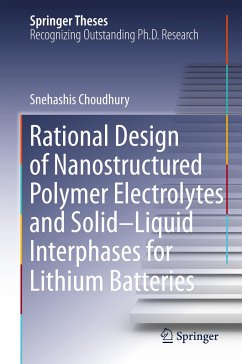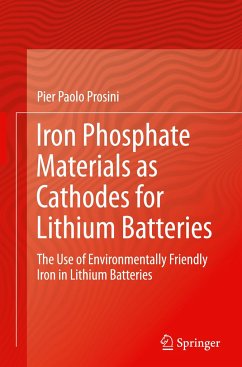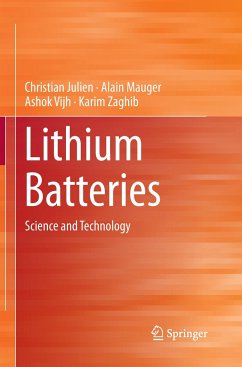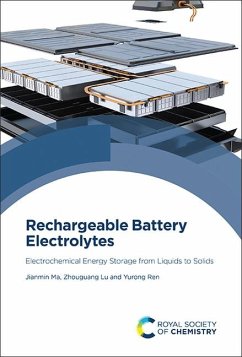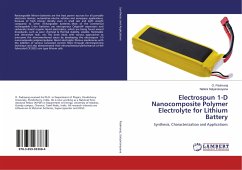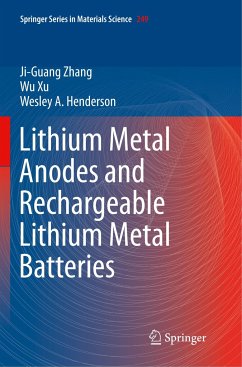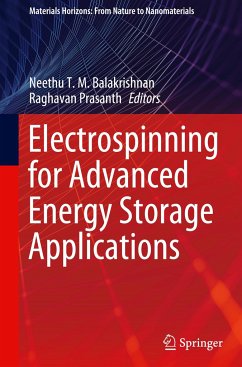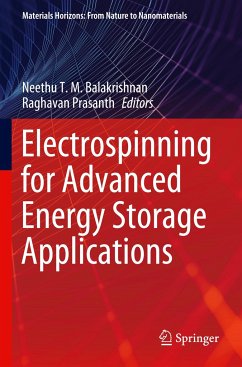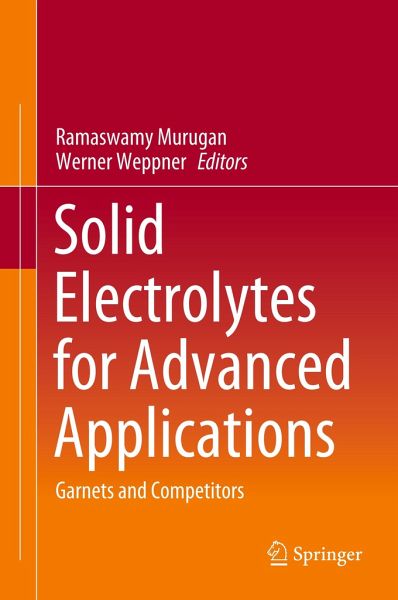
Solid Electrolytes for Advanced Applications
Garnets and Competitors
Herausgegeben: Murugan, Ramaswamy; Weppner, Werner

PAYBACK Punkte
61 °P sammeln!
This book highlights the state of the art in solid electrolytes, with particular emphasis on lithium garnets, electrolyte-electrode interfaces and all-solid-state batteries based on lithium garnets. Written by an international group of renowned experts, the book addresses how garnet-type solid electrolytes are contributing to the development of safe high energy density Li batteries. Unlike the flammable organic liquid electrolyte used in existing rechargeable Li batteries, garnet-type solid electrolytes are intrinsically chemically stable in contact with metallic lithium and potential positive...
This book highlights the state of the art in solid electrolytes, with particular emphasis on lithium garnets, electrolyte-electrode interfaces and all-solid-state batteries based on lithium garnets. Written by an international group of renowned experts, the book addresses how garnet-type solid electrolytes are contributing to the development of safe high energy density Li batteries. Unlike the flammable organic liquid electrolyte used in existing rechargeable Li batteries, garnet-type solid electrolytes are intrinsically chemically stable in contact with metallic lithium and potential positive electrodes, while offering reasonable Li conductivity. The book's respective chapters cover a broad spectrum of topics related to solid electrolytes, including interfacial engineering to resolve the electrolyte-electrode interfaces, the latest developments in the processing of thin and ultrathin lithium garnet membranes, and fabrication strategies for the high-performance solid-state batteries.This highly informative and intriguing book will appeal to postgraduate students and researchers at academic and industrial laboratories with an interest in the advancement of high energy-density lithium metal batteries





